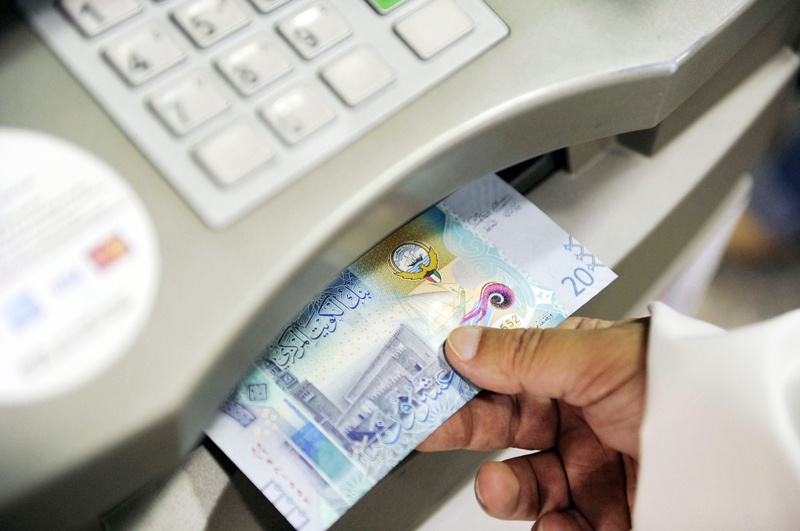KUWAIT: The coronavirus situation had an impact on spending for Kuwaitis, especially during the lockdown period and the decrease in spending on travelling and other entertainment means. The COVID-19-imposed lifestyle forced many Kuwaitis to save more money from their salaries as markets, stores, cinema, gyms and beauty salons closed and people had to stay home, as well as the exemption from paying monthly installments for a year. The lack of investment means provided by local banks led the Central Bank of Kuwait to encourage citizens on saving money and to invest, as part of its campaign "let's be aware."
In the light of the drop in profit rate and fear of investing in shares and real estate that the pandemic brought, Kuwaitis headed towards buying luxury items such as expensive watches and gold with their savings. In statements to KUNA, a number of citizens agreed that the pandemic affected their money spending rate, as they turned from consumption to saving. They added that they spent more money on food items, online shopping and entertainment games and less on travelling and restaurants.
Sara Al-Mazyad noted that postponing monthly installment for banks for six months allowed her to save the money she used to pay for installments every month. She saved money worth KD 1,500 ($4,800), which she used to spend on cafes and shopping. Al-Mazyad added that she thought of investing in her savings with something useful, but with the lack of investment options currently, she turned to buying gold. In the meantime, Hamad Al-Salem said he wasn't able to save his installment during the lockdown, as he spent it on online shopping and buying entertainment items for his kids. He noted that staying home for a long time can lead to "emotional shopping," buying unnecessary items out of boredom and stress.
Meanwhile, Omar Al-Mutawaa said that online studying for children allowed him to save more money which he used to spend on buying school items and requirements for his three kids. According to the Central Statistical Bureau, there are 323,358 Kuwaitis working in the public sector with an average salary of KD 1,520 (about $4,850), who were able to save money after the installment exemption. Moreover, CBK announced that deposits in local banks rose 4.1 percent during 2020, reaching its highest record at KD 61 billion, with 78.1 percent being from local sources.
In the meantime, CEO of the Shared Electronic Banking Services Company (Knet) Abdullah Al-Ajmi affirmed that the company cannot monitor saving, spending or investment rate, however, it can monitor money withdrawal or payment. The company noticed an increase in online payment and a decrease in cash payments as the pandemic started, Ajmi said. This increase in online payment led the company to distribute over 3,000 new points of sale across the country, especially in supermarkets, pharmacies and hospitals, he added.
Cash withdrawal through ATMs decreased by 67 percent compared to May 2019, with 870,000 transactions, compared to 2.6 million. In June 2020, cash withdrawal went down to 39 percent, 20 percent in July and 15 percent in August, compared to the same time period in 2019, said the CEO. He noted that cash withdrawal dropped to KD 70.6 million in May 2020 by 64 percent, compared to the same month in 2019, the highest drop rate during the pandemic.
Transactions in points of sale went down by 55 percent in March 2020 on an annual rate, said Ajmi, adding that the decrease was highest in May 2020 with 66 percent, dropping from 17 million transactions to six million. The transactions value dropped from KD 855 million to KD 230 million in the same month, compared to 2019. In the same context, professor of finance and financial facilities in Kuwait University Dr Talla' Al-Dihani said the pandemic closed most stores and markets, as well as the fact that tourism stopped, gave people the opportunity to save money. - KUNA











